
Ph.D. in Physics
Lecturer
- About
-
- Email Address
- nicolas.rubidoobrer@abdn.ac.uk
- Office Address
- School/Department
- School of Natural and Computing Sciences
Biography
Since January 2022 I am a Lecturer of the Institute for Complex Systems and Mathematical Biology (ICSMB), University of Aberdeen (UoA). Previously, I was an Adjunct Professor of the Physics Institute in the School of Sciences (IFFC), Universidad de la República (UdelaR), Uruguay. I was appointed at the IFFC after my Ph.D. (in Dec. 2014), working as part of the Non-Linear Physics group (NLP) and its experimental branch, the Laboratory of Instabilities in Fluids, which I remain as an associate researcher. From June 2020 up to January 2022 I worked as Research Fellow of the Aberdeen Biomedical Imaging Centre (ABIC) in a project involving the development of novel neuroimaging ways to classify Alzheimer's disease and mild-cognitive impairment from large-scale brain networks.
I have a Ph.D. in Physics from the UoA for the thesis: "The mathematical principles behind the transmission of Energy and Synchronisation in Complex Networks", which was supervised by Dr. Murilo S. Baptista and Prof. Celso Grebogi. The thesis got nominated to the Springer theses award "the best of the best" by the UoA, which after winning was published as a book (ISBN 978-3-319-22216-5). Its outcomes (including 6 publications) involve exact and approximate results for the behaviour and stability of complex systems, which are particularly useful when studying phase-angle stability at the transmission level of power-grid systems. Before my Ph.D., I got an M.Sc. in Physics from the UdelaR for the thesis: "Synchronisation of coupled electronic oscillators", which was supervised by Prof. Arturo C. Martí and Dr. Cecilia Cabeza. The thesis (including 3 publications) analyses the dynamics of electronic oscillators modelling gregarious fireflies, which I implemented using dual RC circuits and interactions via LED light pulses. My results include conclusions for the synchronisation of networks of generic piecewise oscillators, which are also helpful in understanding neural excitatory and inhibitory dynamics.
Qualifications
- PhD Physics2014 - University of AberdeenThesis: The mathematical principles behind the transmission of Energy and Synchronisation in Complex Networks Supervisors: Dr. Murilo S. Baptista and Prof. Celso Grebogi
- MSc Physics2010 - Universidad de la RepúblicaThesis: Synchronisation of coupled electronic oscillators Supervisors: Prof. Arturo C. Martà and Dr. Cecilia Cabeza
- BSc Physics2008 - Universidad de la RepúblicaHonours project: Schlieren method implementation for the detection of a flowing flow Supervisor: Dr. Ismael Núñez and Dr. Cecilia Cabeza
External Memberships
-
Memberships
- Review Editor:
- Frontiers in Computational Neuroscience
- Frontiers in Network Physiology - Networks in the Brain System
- Frontiers in Physics - Interdisciplinary Physics
Latest Publications
Diversity-sensitive brain clocks linked to biophysical mechanisms in aging and dementia
Nature Mental Health, vol. 3, pp. 1214–1229Contributions to Journals: ArticlesIncluding the Magnitude Variability of a Signal in the Ordinal Pattern Analysis
Entropy, vol. 27, no. 8, 840Contributions to Journals: Articles- [ONLINE] DOI: https://doi.org/10.3390/e27080840
- [OPEN ACCESS] http://aura.abdn.ac.uk/bitstreams/3c5fe190-4487-4a4d-8189-72c78647635c/download
Introduction to Focus Issue: Data-driven models and analysis of complex systems
Chaos, vol. 35, no. 3, 030401Contributions to Journals: Editorials- [ONLINE] DOI: https://doi.org/10.1063/5.0263794
- [ONLINE] View publication in Scopus
Non-trivial generation and transmission of information in electronically designed logistic-map networks
Chaos, vol. 35, no. 3, 033151Contributions to Journals: Articles- [ONLINE] DOI: https://doi.org/10.1063/5.0238711
- [OPEN ACCESS] http://aura.abdn.ac.uk/bitstreams/161b0f57-0e96-4c8a-a469-b6f4ca11fa55/download
Functional ultrasound and brain connectivity reveal central nervous system compromise in Trembler-J mice model of Charcot-Marie-Tooth disease
Scientific Reports, vol. 14, no. 1, 30073Contributions to Journals: Articles
Prizes and Awards
- Young Researchers Award – Dynamics Days Europe conference (supported by the European Physical Society, AIP publishing, and the Chaos journal), Greece 2016
- Springer theses award: “the best of the best” – Springer, Germany 2015
- SUPA Studentship prize (No. 1802), 2011 – Scottish Universities Physics Alliance
- Research
-
Research Overview
My research is focused on the study of Complex Systems (i.e., many interacting dynamical systems), where I apply my expertise in Network theory, Dynamical Systems, Numerical Modelling, and Data Analysis. Following a bottom-up approach, I aim to explain and predict the collective behaviours that can emerge -- such as chaos or synchronisation -- from their connectivity. I am also interested in reverse engineering the system's connectivity from observations of its collective behaviours, which I do by following a top-down approach (that is, doing network inference or data mining). Since complex systems appear in many disciplines, I collaborate in various inter-disciplinary projects, such as in brain network studies (including Alzheimer's disease, depression, and ageing), consciousness and its alterations (studying the sleep-wake cycle of mammals), climate change and forecasting at intra-seasonal time-scales, and the stability of power-grid systems. Through my research, I seek to develop (or apply) new methodologies to analyse data in the form of images, signals, or static and time-varying networks (e.g., for community detection or spectral characterisations), which are useful in the analysis of real-world complex systems.
In particular, I am fascinated by Network Neuroscience research, where complexity challenges abound -- neurons in the brain create a myriad of dynamical behaviours due to their intricate connectivity and complex substrate and our observations can only access these behaviours by indirect measurements. In this sense, I am interested in answering how do we manage to infer the brain's connectivity from indirect measurements (e.g., EEGs or MRIs)? how do particular pathologies (e.g., Alzheimer's disease or chronic depression) affect the brain's connectivity? what data-driven conclusions can we draw from studying different states of consciousness (e.g., REM sleep)? and how can we develop/improve methods (both, in data mining and analysis) to increase our understanding of these issues?
I am also interested in Fluid Dynamics, specifically, in turbulence and numerical simulations of Navier-Stokes equations; in the mathematical properties of Non-linear Dynamical Systems, mainly, with respect to bifurcation theory; in Non-equilibrium Statistical Mechanics, with a focus on the statistical properties of time-delayed systems and of neural/biological networks; and finally, in the development of novel Information Theory and Data Analysis techniques.
Research Areas
Accepting PhDs
I am currently accepting PhDs in Physics, Applied Health Sciences, Maths.
Please get in touch if you would like to discuss your research ideas further.

Applied Health Sciences
Accepting PhDs
Research Specialisms
- Applied Mathematics
- Physics
- Numerical Analysis
- Applied Physics
- Computational Physics
Our research specialisms are based on the Higher Education Classification of Subjects (HECoS) which is HESA open data, published under the Creative Commons Attribution 4.0 International licence.
Current Research
Selected publications
- Critical parameters of the synchronisation's stability for coupled maps in regular graphs, Chaos, Solitons & Fractals 158, 112001 (2022).
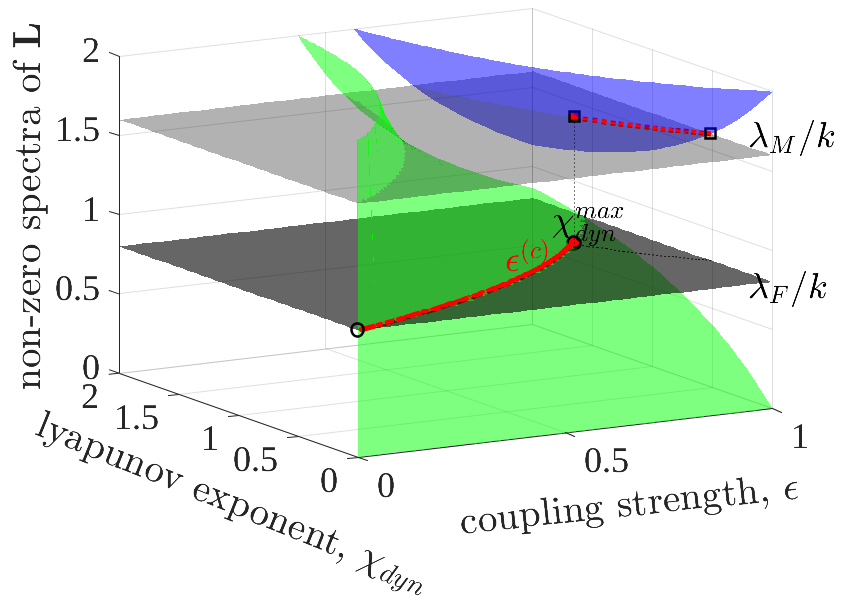

- Low Frequency Oscillations drive EEG's complexity changes during Wakefulness and Sleep, Neuroscience 494, 1-11 (2022).

- The distinct influence of two Madden-Julian's trajectory classes on the South American Dipole, Journal of Climate 35(21), 3487-3501 (2022).
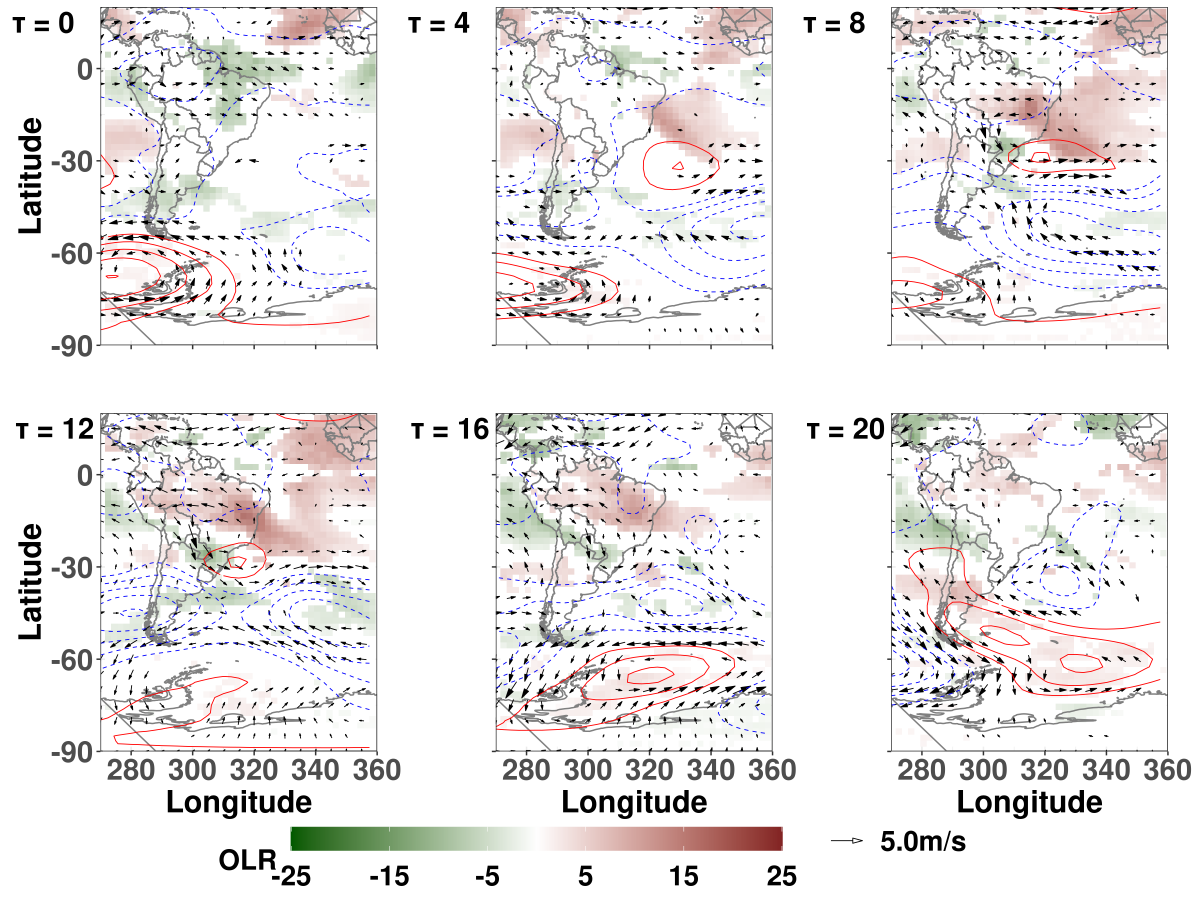
- Small-worldness favours network inference in synthetic neural networks, Nature Scientific Reports 10, 2296 (2020).
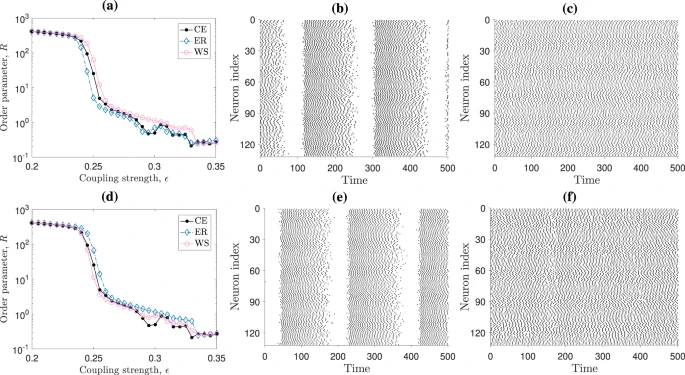
- Decreased electrocortical temporal complexity distinguishes sleep from wakefulness, Nature Scientific Reports 9, 18457 (2019).
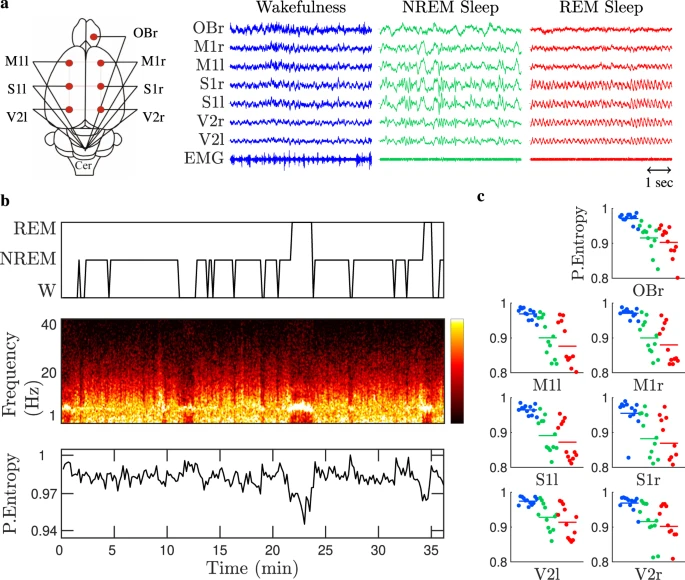
- Entropy-based Generating Markov Partitions for Complex Systems, Chaos: an Interdisciplinary Journal of Nonlinear Science 28(3), 033611 (2018).

- Dynamical detection of network communities, Nature Scientific Reports 6, 25570 (2016).
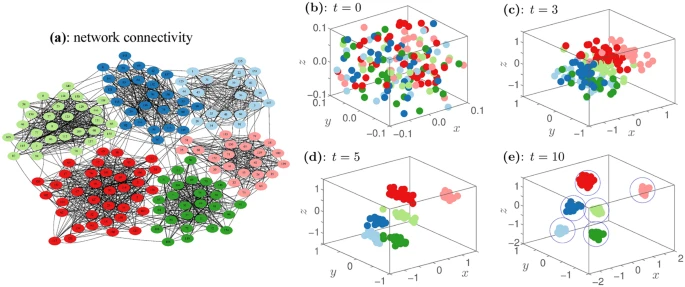
Past Research
I was a Research Fellow on a Roland Sutton Academic Trust (RSAT) funded project, led by Dr. V. Vuksanovic. The project was focused on developing a model of brain-impaired-functions in Alzheimer’s disease from large-scale brain networks; rather than on existing diagnostic categories. The objective of the overall project is to develop novel neuroimaging-informed ways to classify Alzheimer’s disease and mild cognitive impairment. Neuroimaging-defined networks can be linked to specific behavioural and cognitive scores, which aim to help in early diagnosis.
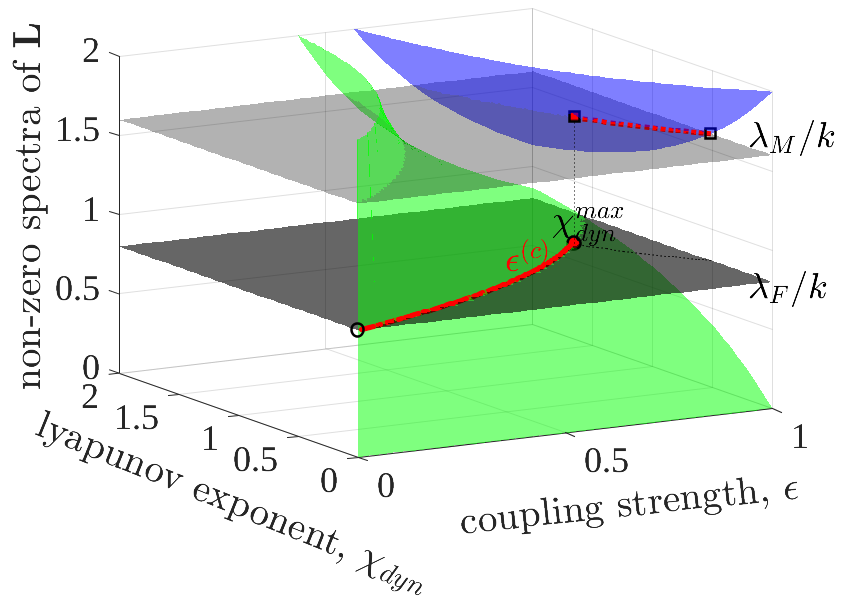
Critical parameters of the synchronisation's stability for coupled maps in regular graphs
In this work, you can find mathematical expressions that quantify the impact of the network’s spectral characteristics on the stability of its synchronous behaviour, including explicit formulas for the eigenvalues of finite- and infinite-sized cyclic graphs. In particular, the minimum coupling strength and link density necessary to have stable synchronisation of chaotic maps (discrete-time dynamical systems) and provide an upper limit to the chaoticity that can be stably synchronised.
Collaborations
Ongoing (open-ended)
-
Stability analyses of power grids at the transmission level and phase synchronisation: Dr Murilo S. Baptista and Prof Celso Grebogi (ICSMB, University of Aberdeen, U.K.)
-
Development of methods for network analyses (such as community detection): Dr Marcos G. Quiles and Prof Elbert E. N. Macau (UNIFESP, Brazil)
-
Development of methods for data analysis (such as signal or imaging analysis): Prof Cristina Masoller (Universitat Politécnica de Catalunya, DONLL, Spain), Prof Arturo C. Marti and Dr Cecilia Cabeza (Non-Linear Physics group, Universidad de la República, Uruguay), Dr Murilo S. Baptista and Prof Celso Grebogi (ICSMB, University of Aberdeen, U.K.)
-
Analysis of consciousness from EEG data of sleep-wake states: Prof Pablo Torterolo (Laboratory of Sleep Neurobiology, Universidad de la República, Uruguay), Dr Diego Mateos (Universidad Autónoma de Entre Ríos, CONICET, Argentina), and Dr Claudia Pascovich (Consciousness and Cognition Laboratory, University of Cambridge, U.K.)
- Development of biomarkers for healthy ageing from EEG data (EuroLAD-EEG consortium): Dr Mario A. Parra (Applied Cognition Lab, University of Strathclyde, U.K.)
-
Analysis of mice vasculature networks from functional ultrasound data: Dr Javier Brum (Laboratory of Acoustic Ultrasound, Universidad de la República, Uruguay) and Dr Alejandra Kun (Clemente Estable Institute of Biological Research, Uruguay)
-
Analysis of brain networks in Alzheimer's disease from functional MRI data: Dr Vesna Vuksanovic (Swansea University Medical Research, UK), Prof Dante Chialvo (Universidad General de San Martín, CONICET, Argentina), and Prof Ignacio Cifre (Universitat Ramon Llull, Spain)
-
Analysis of brain networks in depression from functional MRI data: Dr Victoria Gradín (Centre for Basic Research in Psychology, Universidad de la República, Uruguay) and Dr Ignacio Rebollo (DIfE, German Institute of Human Nutrition Potsdam-Rehbrücke)
-
Development of climate models and forecast at the intra-seasonal time-scale: Prof. Marcelo Barreiro and Dr Nicolas Díaz(Department of Atmospheric Sciences, Universidad de la República, Uruguay)
Supervision
- Present supervisions
- Ph.D. student - Mohammad Mogri (University of Aberdeen, School of Natural and Computing Sciences, UK)
- Thesis: Network’s relevance in the communication between components of noisy complex systems
- Funding: Saudi Arabia government
- Topics: Non-Linear Dynamics, Networks, Stochasticity, Information theory
- Area: Applied Mathematics
- Ph.D. student - Caracé Guitérrez (Universidad de la República, School of Sciences, Uruguay)
- Thesis: Finding the optimal connectivity for Complex Systems: maximising the information transmission with minimal connections
- Funding: ANII grant POS_NAC_2018_1_151237 (2019-2022)
- Topics: Non-linear Dynamics, Networks, Information theory, Circuit analysis
- Area: Physics
- Ph.D. student - Mohammad Mogri (University of Aberdeen, School of Natural and Computing Sciences, UK)
- Past supervisions
- Ph.D. student - Joaquín González (Universidad de la República, School of Medicine, Uruguay)
- Thesis: Characterization of a psychodelic state in rats: Ibogaine and REM sleep
- Viva: May 2024
- Funding: CAP UdelaR scholarship for TAs (2021-2023)
- Topics: Neuroscience, Electrophysiology, Non-linear Dynamics, Data Analysis
- Area: Applied Health Sciences
- Ph.D. student - Nicolás Díaz (Universidad de la República, School of Sciences, Uruguay)
- Thesis: Intra-seasonal Predictability of Precipitation in Southeastern South America during austral summer
- Viva: Jul 2023
- Funding: CAP UdelaR scholarship for TAs (2018-2022)
- Topics: Weather and Climate forecasting, Mathematical Modelling, Data Analysis
- Area: Physics
- M.Sc. student - Maximiliano Anzibar (Universidad de la República, School of Sciences, Uruguay)
- Thesis: Ultrafast Doppler and Functional Ultrasound for the quantification of cerebral blood volume and the study of brain networks in TrJ mice: a model of the Charcot-Marie-Tooth-1E neuropathy
- Viva: Jul 2023
- Funding: CSIC I+D group grant (No. 1692) / FCE_1_2019_1_155539 / POS_NAC_M_2020_1_164127 (2020-2022)
- Topics: Neuroscience, Acoustic Ultrasound, Imaging Analysis
- Area: Physics/Neuroscience
- M.Sc. student - Juan Gancio (Universidad de la República, School of Sciences, Uruguay)
- Thesis: Exploring the limits of extensivity in Complex Systems
- Viva: July 2022 (distinction)
- Funding: ANII grant POS_NAC_2018_1_151185/CAP UdelaR scholarship for TAs (2019-2022)
- Topics: Statistical Mechanics, Complex Networks, Non-linear dynamics
- Area: Applied Mathematics
- M.Sc. student - Caracé Guitérrez (Universidad de la República, School of Sciences, Uruguay)
- Thesis: Bifurcations and hysteresis in coupled logistic-maps
- Viva: March 2019 (distinction)
- Funding: ANII grant POS_NAC_2016_1_130518 (2017-2019)
- Topics: Non-linear Dynamics, Circuit analysis
- Area: Physics
- Ph.D. student - Joaquín González (Universidad de la República, School of Medicine, Uruguay)
- Teaching
-
Teaching Responsibilities
Course coordinator for:
- PX2015: Dynamical Phenomena
- PX3014: Energy and Matter
- PX4012: Statistical Physics and Stochastic Systems
Non-course Teaching Responsibilities
- PGT supervision: end-of-term research project for MSc in Data Science students
- Publications
-
Page 1 of 6 Results 1 to 10 of 57
Diversity-sensitive brain clocks linked to biophysical mechanisms in aging and dementia
Nature Mental Health, vol. 3, pp. 1214–1229Contributions to Journals: ArticlesIncluding the Magnitude Variability of a Signal in the Ordinal Pattern Analysis
Entropy, vol. 27, no. 8, 840Contributions to Journals: Articles- [ONLINE] DOI: https://doi.org/10.3390/e27080840
- [OPEN ACCESS] http://aura.abdn.ac.uk/bitstreams/3c5fe190-4487-4a4d-8189-72c78647635c/download
Introduction to Focus Issue: Data-driven models and analysis of complex systems
Chaos, vol. 35, no. 3, 030401Contributions to Journals: Editorials- [ONLINE] DOI: https://doi.org/10.1063/5.0263794
- [ONLINE] View publication in Scopus
Non-trivial generation and transmission of information in electronically designed logistic-map networks
Chaos, vol. 35, no. 3, 033151Contributions to Journals: Articles- [ONLINE] DOI: https://doi.org/10.1063/5.0238711
- [OPEN ACCESS] http://aura.abdn.ac.uk/bitstreams/161b0f57-0e96-4c8a-a469-b6f4ca11fa55/download
Functional ultrasound and brain connectivity reveal central nervous system compromise in Trembler-J mice model of Charcot-Marie-Tooth disease
Scientific Reports, vol. 14, no. 1, 30073Contributions to Journals: ArticlesBrain clocks capture diversity and disparities in aging and dementia across geographically diverse populations
Nature Medicine, vol. 30, no. 12, pp. 3646-3657Contributions to Journals: ArticlesBrain health in diverse settings: How age, demographics and cognition shape brain function
Neuroimage, vol. 295, 120636Contributions to Journals: ArticlesDorsal and median raphe neuronal firing dynamics characterized by nonlinear measures
PLoS Computational Biology , vol. 20, no. 5, e1012111Contributions to Journals: ArticlesLyapunov exponents and extensivity of strongly coupled chaotic maps in regular graphs
Chaos, Solitons and Fractals, vol. 178, 114392Contributions to Journals: ArticlesData driven models of the Madden-Julian Oscillation: understanding its evolution and ENSO modulation
npj Climate and Atmospheric Science, vol. 6, no. 1, 203Contributions to Journals: Articles
